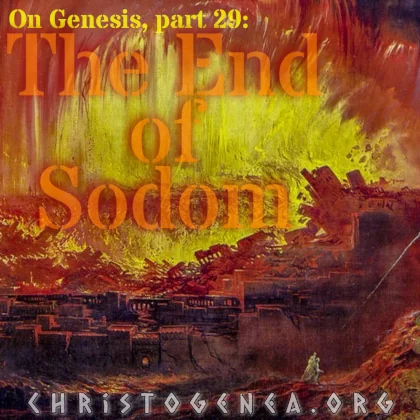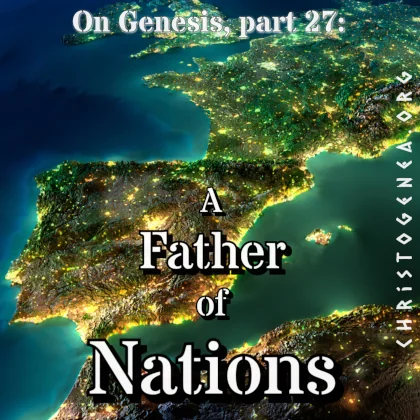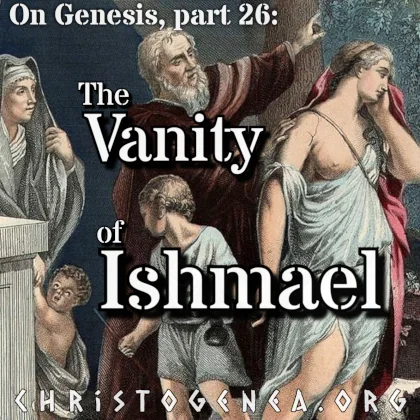
On Genesis, Part 32: Digging Deeper
In this second half of Genesis chapter 21, Abraham is found digging wells, and he and his servants must have dug at least a few wells before they finally dug one which they would keep. So it is with Christians, that they should be digging wells, but they should not necessarily keep all of them. In other words, Christians should be digging into the scriptures, both Old Testament and New, rather than simply believing some pastor or priest, and as Paul had written in Romans chapter 12, the Christian should be “2 … transformed by the renewing of [his] mind, that [he] may prove what is that good, and acceptable, and perfect, will of God.” If anything conflicts with the Word of God, it should certainly not be kept. Therefore, discussing the first half of Genesis chapter 21, which describes the birth of Isaac and the sending off of Ishmael for the benefit of Isaac, we sought to better understand the Christian Gospel of the New Testament by reviewing the manner in which Paul of Tarsus had explained the fulfillments of those promises to Abraham which are ultimately realized in Yahshua Christ. Doing that, we found that in Paul’s letters he upheld the exclusion of both Ishmael and Esau from The Seed of Inheritance as it is also described in Genesis, and that exclusion would naturally include all of their descendants, something which Paul had also explained in Romans chapter 9 and Galatians chapter 3.
Many modern Christian denominations dismiss the Old Testament as a Jewish book, imagining that it pertains to Jews and not to Christians. However that is not how the apostles of Christ had treated the scriptures which we now know as the Old Testament, and they frequently asserted that it pertained to Christians, but not to those who would remain in Judaism. The differences in these perspectives are resolved only in the understanding that the Old Testament truly pertains to all of the twelve tribes of Israel, not merely to Judaeans, and only small elements of two of those tribes were ever called by the name Judaean, which is the original source word for the modern words Jew and Judaism. Ten of those twelve tribes had long before been scattered abroad, along with a great portion of the remaining two, who were never called Jews. The word Jew is not directly from Judah, but from Judaea, which was a multiracial province of the Roman empire, and as Paul wrote in Romans chapter 9, “6 … For they are not all Israel, which are of Israel”, and therefore he prayed only for his “3 … kinsmen according to the flesh.” Likewise, Christ had told His adversaries “26 But ye believe not, because ye are not of my sheep, as I said unto you”, as it is recorded in John chapter 10.
So the apostle Paul had also asserted in the 26th chapter of the Book of Acts that “6 … I stand and am judged for the hope of the promise made of God unto our fathers: 7 Unto which promise our twelve tribes, instantly serving God day and night, hope to come. For which hope's sake, king Agrippa, I am accused of the Jews.” There, it is apparent that Paul did not count the Jews among the twelve tribes. Likewise, the apostle James had written his only surviving epistle “to the twelve tribes which are scattered abroad,” as it states in its opening salutation. Later, in 2 Corinthians chapter 3, using an event from the life of Moses as an allegory in order to illustrate how only Christians could understand the writings of Moses, Paul would explain that only in Christ was the vail lifted which had covered those writings. So his point is that one must understand the words of Christ first, and then one may gain understanding to the true meanings of the Torah, or Pentateuch, the five books which are attributed to Moses.





















